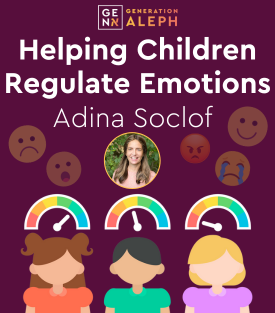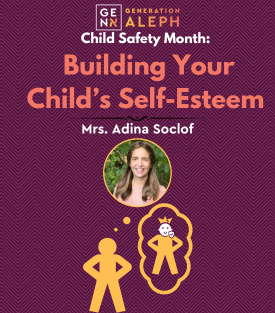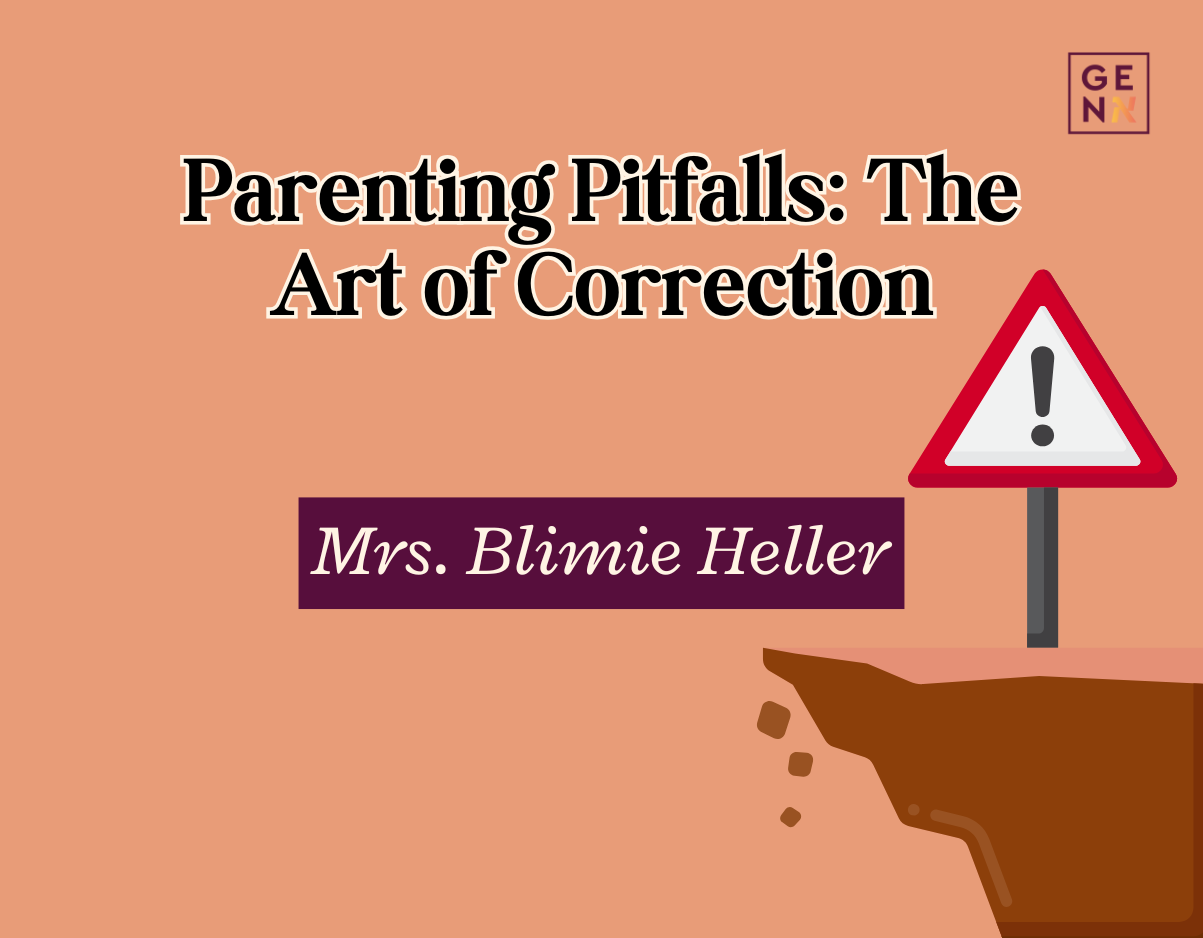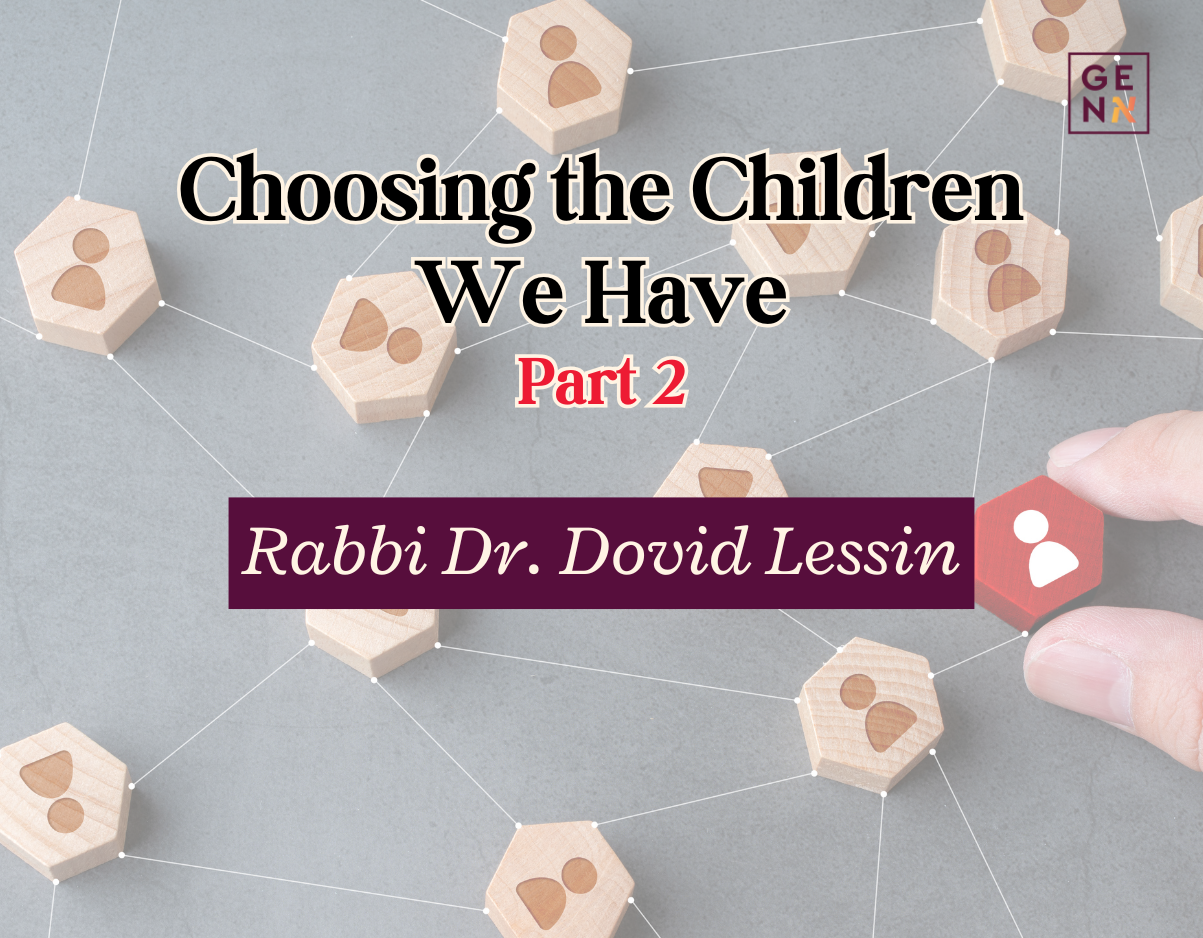As the dismissal teacher directed traffic at pick-up, she noticed a fourth grader exit the gate and walk towards his father’s car, positioned just a few spots back in the carpool line. It was forbidden for students to pass the fence before being summoned, so she called him back and told him he would have to wait. He ignored her and kept walking. When the father eventually pulled up, she explained that his son’s behavior constituted a safety risk and would not be tolerated. To her disbelief, the boy looked directly at his father and barked, “Don’t you listen to her! You listen to me!” Shocked and speechless, the teacher stood aghast as the car drove away.
Incidents like this true story, told to me earlier this year, are occurring with increasing frequency in homes and schools nationwide. The fact that most teachers reading the above vignette will find it familiar, albeit appalling, should concern us greatly. How many Shabbos table conversations have we had with friends in which we’ve bemoaned the rampant lack of respect we see in kids today? Would we have ever dreamed of speaking or acting like this when we were that age, or even know anyone who would have? It’s simply unfathomable.
Which begs the question: What has happened to our children?
Entitled kids
The attitude of entitlement has been slowly spreading through society for the last couple of decades, but we’re now at a point where it seems to have infected a critical mass of our youth. All around us, we see kids, teens, and even young adults who assume they are above the rules that apply to everyone else. Without knowing why, they seem to believe that they are owed something by life and somehow have a right to whatever they want. The primary feature of this widespread affliction is a view of the world through the lens of “me,” where my agenda is of utmost importance, special privileges are to be expected, and all arrows point back to the central focus of every conversation: myself.
It is hard to think of a personality trait with as much negative potential to breed unhappiness and ruin relationships as this one. Entitled kids are not only rude, but they are also at far greater risk of becoming narcissistic adults. Anyone with a narcissistic family member can attest to the emotional damage wrought by an attitude of superiority and self-absorption, accompanied by the lack of ability to understand and care for the feelings and needs of others. Narcissism is one of the most challenging disorders to treat, and yet more difficult to live with.
The seeds of narcissism are planted in the early years of unchecked childhood entitlement. While there is clear evidence to suggest that pervasive selfishness has a biological component, the developmental reasons for how kids become self-absorbed are no less significant. This also means that, as parents, there is much we can do to curb the trend of entitlement in our culture. By addressing the egocentric attitudes we see in our kids, we are not only preventing them from becoming self-absorbed adults. We are also infusing our society with the antidote – much-needed doses of humility, respect, and generosity.
Stemming the tide of entitlement can feel like an uphill battle, given some of the cultural factors working against our favor. But by understanding how this toxic mindset forms, we’ll be in a better position to actually do something about it by offering a healthier perspective to the kids we love most.
Our struggle with “no”
Psychologists offer several explanations for how entitlement develops. For one, we parents have a harder time saying “no” than our parents did. If we’re honest, many of us fear our kids’ angry reactions – either because we worry they’ll no longer want a relationship with us or because we’re scared of what we might feel in response to their wrath. Saying “no” also requires effort, and with our super busy (read: draining) lifestyles, we often don’t have the energy to lock horns with our young ones. It is much easier to simply say “yes,” so we refrain from putting our foot down, even at the expense of our better judgment.
(It’s also never been more tempting to say “yes,” given the material wealth and speed of access to goods and services we enjoy relative to previous generations. We have much to be thankful for, but like every blessing, there are some costs, especially in how we explain things to ourselves. When money is no barrier and delivery is immediate, “no” can feel much harder to justify.)
For some of us, the lack of “no” is driven by an unhealthy desire to be our kids’ best friends. In an effort to achieve closeness, we may overlook the importance of parental authority and try to chummy ourselves into our children’s lives. While we all understand the value of fostering connection, and although friendship is often an integral part of that bond, being pals with our kids must not come with the abdication of our parental responsibility to be, well, parents. By giving in to our children’s wishes more than we should, we’re dismantling the hierarchy kids need at home to feel like someone older and wiser than them is at the reins.
If we’re looking for motivation to help us withstand our kids’ incessant demands, it can help to remember that children who hear “no” and are allowed to experience disappointment gain the tool of emotional resilience that is an indispensable part of overcoming future challenges. We must not handicap them by depriving them of this invaluable superpower. As adults, we know the importance of not crumbling in the face of letdown, of having the fortitude to forge ahead even when things don’t go our way. Moreover, the pleasure of achievement that comes through toil is much sweeter than anything we may have gotten for free.
Other contributing factors
The culture of individualism currently gripping Western society is another relevant factor in this discussion. Today’s obsession with having and being whatever I want teaches children not to question their whims nor deny their impulses. Wanting something has become enough of a reason for them to feel like they deserve it. Yet when we teach our kids that desiring something does not give them a right to it, we’re grounding them in the rules of life. As we know, being realistic is a far better strategy for long-term happiness than letting our children set up camp in the land of wishful thinking.
Some theorists point out that the world feels much more dangerous than the one our folks grew up in, which has led to heightened parental anxiety and overprotection (“helicopter parenting”). And who can blame us? We are inundated with information every hour about bad things happening out there, leading us to think twice before letting our kids roam the neighborhood or go just about anywhere on their own. The problem with this mentality, understandable though it is, is that by creating a haven in which our children are protected from all possible harm, we may be unwittingly hampering them from the chance to cultivate essential skills only gained through experiencing the world firsthand, including its tougher side. Interacting with the harshness of life naturally teaches us that we are owed nothing and cannot expect to have whatever we want. Grim as these messages may sound, we’d rather our kids know them than not.
Finally, researchers assert that entitlement can be a product of focusing on our kids too much. While we do want to be attuned parents, we don’t want to hover over our children in a way that places them under the microscope of our constant care and attention. Kids who grow up as the fixation of their doting parents learn to see themselves as the center of the world. We’re probably better off doing something even more loving than loving them: pulling back a bit so that our children have the space to look out at the world and not only look in at themselves.
Putting someone else in the center
As Jews, we learn that as important as we are – the most precious of G-d’s creations – we are not the focal point of the universe. Judaism is a G-d-centered religion, not a person-centered one. Our exalted status as “a kingdom of priests and a holy nation” (Shemot 19:6) derives not from being experts on how to be served, but from showing the world what it means to serve.
We learn that the greatest human potential is the ability to make ourselves like G-d. G-d’s central attribute is kindness; His will to give is the foundational reason He created the world (Derech Hashem). We, in turn, are brought here as self-centered kids (none of us have ever met an altruistic toddler) and are meant to spend a lifetime growing into people who can put someone else – G-d and other man – at the center of our lives.
Here is our charge: to create a training ground for achieving other-centeredness. Fortunately, we have the perfect setting in which to discipline ourselves and our children in the art of selflessness – the Jewish home.
The family: a laboratory to curb entitlement
The home presents us with an excellent opportunity to see outside ourselves. When we recruit our children in the collective project of family life, we give them a chance to contribute as full-fledged members of our team. We want our kids to feel a sense of ownership and responsibility for the well-being of our family unit. They should know and hear from us regularly that it takes every family member to run our home and that each of them plays an integral part in that effort.
Practically, this means including our kids in daily household activities and teaching them the value of caring for one another. We can make this explicit by saying, “On our team, every person has something important to contribute.” Even while our kids are little, we can task them with small assignments and make a point to appreciate their help. A child who hears a parent say, “Thank you, I couldn’t have done it without you,” is a child who feels great and is more inclined to help in the future.
We should not refrain from thinking with one child about how we can be helpful to another. Children need help understanding their utility – how they can be instrumental in making someone else happy. We know from our own lives that there is no greater joy than seeing a smile on the face of someone you love and knowing that your efforts brought that about. This is a pleasure that we want our kids to feel too.
Parents often worry about overburdening their children, especially if they grew up with too much responsibility on their shoulders. This concern is understandable, and parents must be careful not to place inappropriate expectations on their children. Yet the solution to overburdening is not the absence of duty. It is finding the appropriate amount of responsibility that still allows them to be kids. This balance requires careful thought on the part of parents, but it’s a conversation that is well worth having.
The joy of seeing others
Philosophers have grappled for centuries about the meaning of love. Is it a feeling? A state of mind? An attitude? Rav Reuven Leuchter defines love as the ability to place another person in the center of our focus. Love is the decision that I am willing to give up something of my own for the sake of another being. We need the ability to make this decision by the time we get married (or at least work on it once we’re already there), and it is the skill that allows us to perform the commandment of Ahavat Hashem, loving G-d, for the ability to subjugate our will to His is a key component of being a Jew.
But above all, it is the perspective we bequeath to our children when we bring out the best in them by helping them experience the joy of seeing beyond themselves.
Dr. Dovid Lessin, PsyD, holds a doctorate in Clinical Psychology and is a certified psychotherapist with a private practice in Jerusalem and Modiin, Israel. He specializes in treating couples as well as adult men and adolescents. He lives in Sha’alvim with his wife, Adina, and their four children. Check out his work at https://www.lessintherapy.com
Submit your questions
"*" indicates required fields











